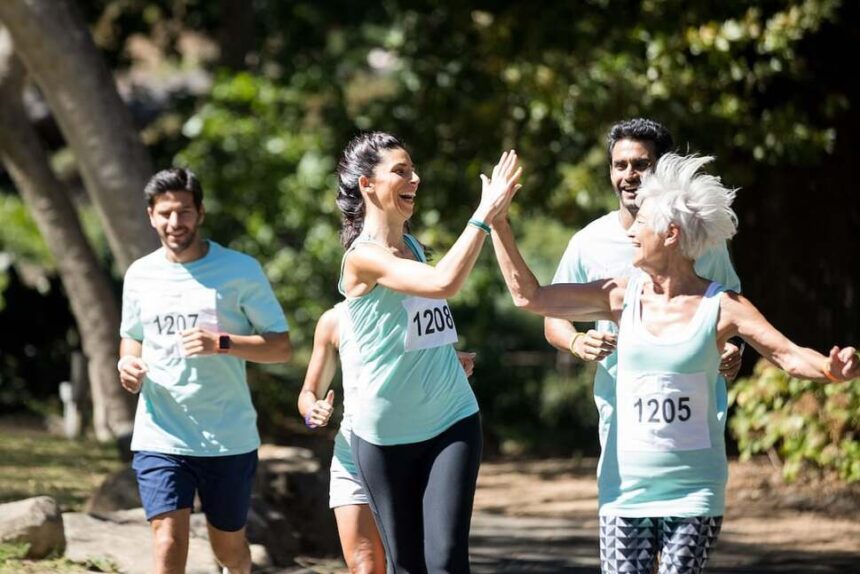TUESDAY, April 1, 2025 (HealthDay News) — A marathon can be a daunting challenge, particularly for folks worried their hearts can’t stand the strain of running 26.2 miles.
But these events are safer than ever for those with heart concerns, according to a new study published March 30 in the Journal of the American Medical Association.
The risk of dying from cardiac arrest during a long-distance event decreased by half during the past decade, a new study says.
It’s not that fewer runners are suffering heart problems. The rate of cardiac arrests that occur during full and half-marathons has remained unchanged, researchers found.
“We continue to see media reports about unfortunate cases of cardiac arrest during long distance running events,” lead researcher Dr. Jonathan Kim, an associate professor of sports cardiology with the Emory School of Medicine, noted in a news release.
However, a runner’s odds of surviving cardiac arrest are double what they were in the past, researchers said
The sport has become more aware of the heart risks of running and is doing a better job preparing emergency response for stricken athletes, Kim said, based on interviews he’s had with survivors.
“What we found was that every one of those people got hands-on cardiopulmonary resuscitation, but the vast majority also had immediate access to an automated external defibrillator,” Kim said. “That’s the difference.”
The cardiac arrest survival rate at a long-distance running event is now comparable to that of other public places that make AEDs routinely available, like airports and casinos, Kim noted.
For the study, researchers analyzed data kept on cardiac arrests among runners in U.S. marathons and half-marathons from 2010 through 2023.
Long-distance events underwent a boom during that period. More than 29 million runners finished a full or half-marathon during that period, triple the number during the previous decade, researchers said in background notes.
They discovered, however, that the rate of cardiac arrests during events has remained about the same.
They found that 176 cardiac arrests had occurred between 2010 and 2023, or about 0.6 cases per 100,000 people, compared with a rate of 0.54 per 100,000 during the 2000s.
However, the death rate among those stricken with a cardiac arrest during an event dropped by more than half, from 71% in the 2000s to 34% from 2010 onward.
Men were much more likely than women to suffer a cardiac arrest, with a case rate of 1.1 per 100,000 people compared to about 0.2 per 100,000, results show.
Marathons also were more likely to have a participant suffer a cardiac arrest than half-marathons, with a case rate of 1 per 100,000 people compared to nearly 0.5 per 100,000.
Clogged arteries were more likely than a thickened, lower-functioning heart muscle to cause a cardiac arrest during a long-distance event, based on runners for whom a definitive cause could be determined.
These findings highlight the importance of making CPR training available to race participants, and strategically placing automated external defibrillators (AEDs) along the racecourse, Kim said.
Researchers and doctors also can help by better identifying runners with heart risks and addressing their problems before they enter an event, Kim added.
“These are more often potentially preventable events,” he said. “Being able to identify people, more commonly older individuals with unrecognized cardiovascular risk factors, doesn’t mean they can’t run a race. Rather, it affords the opportunity to improve primary preventive cardiovascular care and potentially .




